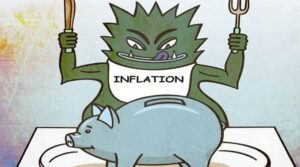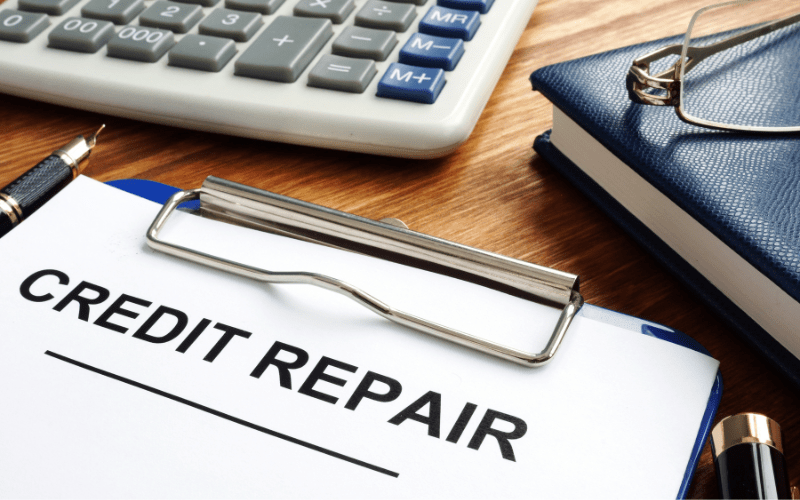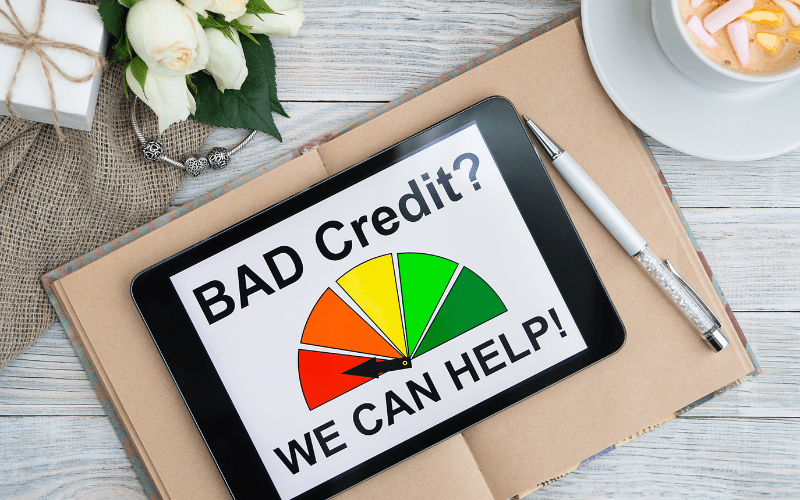Inflation is when the prices of things we buy go up over time. It can make everything more expensive, from groceries to gas. But did you know that inflation can also affect your credit? In this blog, we’ll explore how inflation can impact your credit and why seeking help from Credit Friendly Solutions can be a smart move.
Understanding Inflation
What is Inflation?
Inflation happens when the cost of goods and services increases. This means you might need to spend more money to buy the same things you used to. Inflation can be caused by various factors including increased production costs, higher demand for products and services, and government policies. There are different types of inflation, such as demand-pull inflation, cost-push inflation, and built-in inflation, each affecting the economy differently.
Historical Examples of Inflation
Throughout history, there have been periods of significant inflation. For example, in the 1970s, many countries experienced high inflation rates due to oil price shocks. Another example is Zimbabwe in the late 2000s, where hyperinflation led to astronomical price increases and severe economic instability. These examples show how inflation can dramatically impact economies and individuals.
Direct vs. Indirect Effects of Inflation
Direct Effects on Economy
Inflation directly affects the economy by increasing the cost of goods and services. This leads to higher prices for consumers and can cause interest rates to rise as central banks try to control inflation. These direct effects can reduce the purchasing power of money, making it more expensive to live day-to-day.
Indirect Effects on Individuals
The indirect effects of inflation on individuals include changes in purchasing power and the impact on savings and investments. As prices rise, people may find it harder to afford the same lifestyle, leading to increased use of credit and potential financial strain. Inflation can also erode the value of savings, making it harder to plan for the future.
How Inflation Affects Your Credit
Higher Prices and Household Budgets
When prices go up, you might need to spend more on things like food, gas, and other everyday items. This can make it harder to save money or pay off your debts. If you’re not careful, you might end up using your credit cards more to cover these higher costs. Using credit cards more often can lead to higher balances, which can affect your credit score. High balances can also increase your credit utilization ratio, a key factor in your credit score calculation, making it essential to manage spending carefully.
Rising Interest Rates
Sometimes, when inflation goes up, interest rates do too. This means it can cost more to borrow money. If you have a credit card or a loan, higher interest rates can make your monthly payments more expensive. This can be challenging if your budget is already tight due to rising prices. Additionally, higher interest payments mean less money available for savings or other expenses, further straining your financial situation.
Difficulty in Obtaining New Credit
If inflation is high, lenders might become more careful about who they lend money to. They might think it’s riskier to lend money when prices are going up because people might have a harder time paying it back. This could make it more difficult for you to get new credit or loans. As a result, you might face stricter lending criteria, such as higher credit score requirements or more extensive financial checks, making it harder to secure financing when you need it most.
Credit Score Implications
Increased Credit Card Balances
Using credit cards more frequently due to higher prices can lead to increased balances. This can negatively affect your credit score as your credit utilization ratio increases. A high credit utilization ratio indicates that you are heavily reliant on credit, which can be a red flag for lenders and lower your credit score.
Higher Loan Payments
If you have loans with variable interest rates, rising interest rates can lead to higher monthly payments. This can strain your budget and make it harder to keep up with your payments. Missing or making late payments can significantly impact your credit score, making it important to stay on top of your debt obligations.
Potential for Credit Inquiries
During times of inflation, you might need to apply for additional credit to cover rising costs. Each time you apply for credit, a hard inquiry is made on your credit report. Multiple hard inquiries in a short period can lower your credit score, making it crucial to manage your credit applications carefully.
Coping Strategies During Inflation
Budgeting and Financial Planning
Creating a budget can help you see where your money is going. List all your income and expenses, and see if there are areas where you can cut back. This can help you avoid using your credit cards too much and keep your balances low. Additionally, a budget can help you prioritize essential expenses and identify non-essential spending that can be reduced, ensuring you stay financially stable during inflation.
Managing Existing Debt
If you have any outstanding debts, try to pay them off as soon as possible. Start with high-interest debts, like credit cards, because they can become very expensive if interest rates go up. Reducing your debt can free up more of your income for savings and other financial goals, making it easier to manage during inflation. Consider consolidating high-interest debt into lower-interest options if possible.
Building an Emergency Fund
Having some extra money saved up can be really helpful during times of inflation. An emergency fund can help you cover unexpected expenses without having to rely on credit cards or loans. Aim to save at least three to six months’ worth of living expenses to provide a financial cushion during uncertain times. This can give you peace of mind and help you avoid accumulating more debt.
Long-Term Financial Health
Maintaining a Healthy Credit Score
Keep an eye on your credit score to make sure it stays healthy. You can get a free credit report from each of the three major credit bureaus once a year. Check for any mistakes and report them right away. Regular monitoring can help you catch potential issues early and take corrective action before they impact your credit score, ensuring long-term financial stability.
Smart Credit Use
Responsible use of credit cards is essential for maintaining a good credit score. Try to pay off your balance in full each month to avoid interest charges and keep your credit utilization low. Avoid taking on unnecessary debt and make informed decisions about when and how to use credit to maintain a healthy financial profile.
Investing in Inflation-Resistant Assets
Consider investing in assets that tend to perform well during inflation, such as real estate, commodities, or inflation-protected securities. Diversifying your investments can help protect your financial health during periods of rising prices and provide a hedge against inflation’s impact on your savings.
Seeking Professional Help
Benefits of Credit Counseling: Credit counseling can provide you with expert advice on managing your finances, especially during times of inflation. Counselors can help you create a budget, develop a debt repayment plan, and offer strategies to improve your credit score. Professional guidance can make a significant difference in navigating financial challenges.
Services Offered by Credit Friendly Solutions
Personalized Advice: Credit Friendly Solutions offers personalized advice that is tailored to your specific situation. They can help you create a budget, pay off debt, and improve your credit score. This personalized approach ensures that the advice you receive is relevant and effective for your unique financial needs.
Experienced Professionals: The team at Credit Friendly Solutions has years of experience in helping people manage their credit. They understand how inflation can impact your finances and can offer practical solutions. Their extensive knowledge and expertise can guide you through complex financial challenges, making it easier to navigate tough times.
Helpful Resources: Credit Friendly Solutions also provides a variety of resources to help you learn more about credit and how to manage it. This can include articles, workshops, and one-on-one consultations. These resources are designed to educate and empower you, giving you the tools you need to make informed financial decisions.
Contact Information
If you need help managing your credit during inflation, don’t hesitate to reach out to Credit Friendly Solutions. You can contact them at info@creditfriendlysolutions.com or call +1 (916)-680-8501.
Inflation can have many indirect effects on your credit. By understanding these effects and taking steps to manage your credit wisely, you can protect your financial health. Remember, if you need expert advice, Credit Friendly Solutions is here to help. Reach out to them for personalized assistance and start taking control of your financial future today.
Click here to read the next blog









